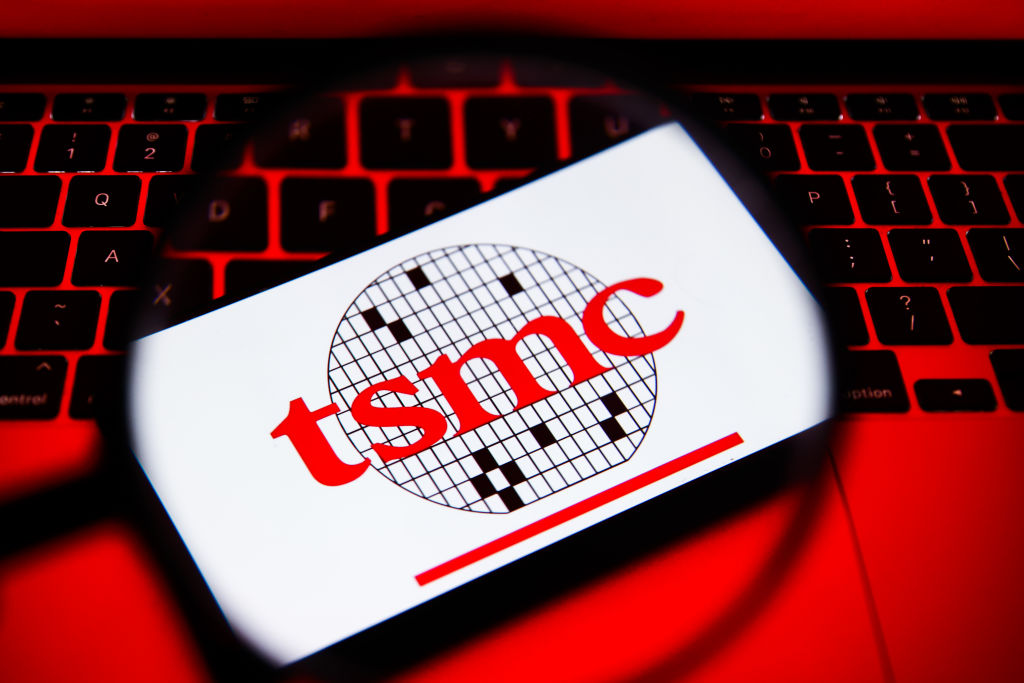
Taiwan Semiconductor Manufacturing (TSM) is sparking a rally in chip stocks Thursday after the semiconductor manufacturer beat top- and bottom-line expectations for its fourth quarter and issued a strong outlook for its first-quarter results.
At last check, TSM shares were up nearly 5%, while fellow semiconductor stocks Lam Research (LRCX) and KLA Corp (KLAC) were roughly 7% higher.
In the quarter ending December 31, the Taiwan-based chip manufacturer, whose clients include Magnificent 7 stocks Nvidia (NVDA) and Apple (AAPL), said revenue increased 37% year over year to $26.9 billion. Its earnings per share (EPS) rose 55.6% from the year-ago period to $2.24.
"Our business in the fourth quarter was supported by strong demand for our industry-leading 3 nanometer and 5 nanometer technologies," said Taiwan Semiconductor Chief Financial Officer Wendell Huang in a statement.
Huang added that in the first quarter, "we expect our business to be impacted by smartphone seasonality, partially offset by continued growth in AI-related demand."
Is Taiwan Semiconductor stock a buy, sell or hold?
Taiwan Semiconductor has put in an impressive performance on the price charts over the past 12 months, up 114% on a total return basis (price change plus dividends) vs the S&P 500's 26% gain. And Wall Street thinks the tech stock has more room to run.
According to S&P Global Market Intelligence, the average analyst target price for TSM stock is $236.14, representing implied upside of nearly 9% to current levels. Additionally, the consensus recommendation is a Strong Buy.
Financial services firm Needham is one of those firms with a Buy rating on TSM stock and has a $225 price target.
"We expect Taiwan Semiconductor Manufacturing's foundry business to strengthen as we do not foresee a competitive challenge for the next several years," says Needham analyst Charles Shi. "As Moore's Law [an observation that suggests the number of transistors in an integrated circuit doubles every two years] slows, we expect TSMC will need to spend aggressively in research and development and invest in capacity."
The analyst adds that he expects Taiwan Semiconductor will need to expand its operations outside of Taiwan " as the world enters a new era of superpower competition."







